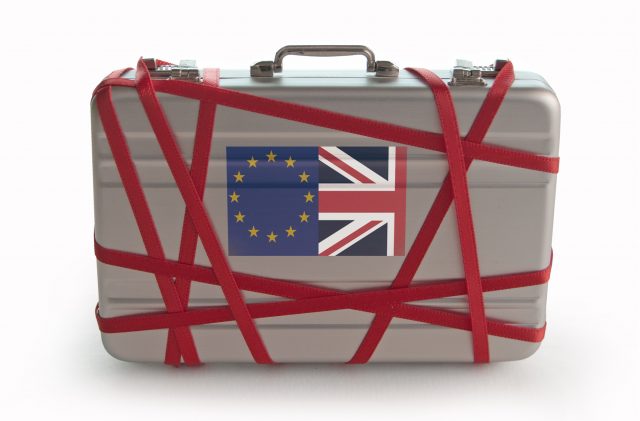This website uses cookies so that we can provide you with the best user experience possible. Cookie information is stored in your browser and performs functions such as recognising you when you return to our website and helping our team to understand which sections of the website you find most interesting and useful.
UK wine trade celebrates abolition of ‘unnecessary’ import certificates
Fine wine merchants, agents and distributors have shared their enormous relief at the UK government’s decision not to impose an additional layer of costly wine bureaucracy in the form of import certificates.

The Department for Environment, Food & Rural Affairs announced on 25 July that ‘wine import certificates’ would not be required for EU-origin wines imported into Great Britain.
The import certificates were a close facsimile of the dreaded VI-1 certificates, currently used by EU member states for wines imported from outside the trade bloc.
Originally, the import certificates were due to come into force on 1 July. However, in a dramatic U-turn, the government has scrapped them altogether – both for European and non-EU imports.
“As the largest trader of fine wine globally, and being London-based, Bordeaux Index is delighted that common sense has prevailed in the removal of the VI-1 forms from the post-Brexit trade requirements; indeed the fact that the VI-1 forms have been removed for non-EU trade is an unexpected – albeit eminently sensible – bonus,” said Matthew O’Connell, head of investment at Bordeaux Index.
“As we had outlined in the paper submitted to DEFRA, the volume and complexity of documentation required under the previously envisaged system would have been so burdensome for us in particular given the high daily volume of wines traded on our online LiveTrade trading platform,” he added.

Jeroboam’s wine director Peter Mitchell MW agreed that the abolition of additional regulations relating to the import of non-EU wines was to be welcomed.
Prior to the UK’s succession from the EU on January 1 2021, UK businesses were legally required to use VI-1 forms for their non European trading partners.
“The infrastructure to manage VI-1s from the EU was simply not in place and I would have expected significant issues,” Mitchell told db.
“For New World producers, where the systems are in place, there will be a modest saving in cost and time involved. This will remove a little inflationary pressure and remove a barrier to trade.
“For fine wine, there would have been work around involving smaller shipments for example, but these would have added cost and complexity so it should help to secure our position as a world hub for wine trading.”
The VI-1 form is a colossal piece of bureaucracy, requiring a full laboratory analysis of each wine being shipped, including alcohol and acidity.
According to Tom Turner, director of trading & operations for Cult Wines, the introduction of the VI-1 forms for EU wine imports would have meant “burdensome paperwork requirements” leading to estimated increases in transport costs of up to 50%.
“These costs would eventually reflect in the cost of stock, not significant for the most expensive wines perhaps, but certainly considerable at the lower end of the price scale,” said Turner.
“The scariest cost though, was the immeasurable cost of opening bottles to perform laboratory testing. For the fine wine sector, this concept has potentially disastrous implications of course and in particular for older, rarer wines being imported.”
Corney & Barrow’s head buyer Rebecca Palmer joined Turner in expressing her relief at the abolishment of this unnecessary layer of bureaucracy.
However, she added that the post-Brexit trading regulations, irrespective of the scapping of the VI-1 forms, were still causing distributors numerous headaches.
“For UK-based fine wine trade operators operating pan-Europe, Brexit has significantly affected their ability to trade, as re-exporting to Europe has become complex,” said Palmer.
She continued: “We know this from talking to the trade, but have also been affected ourselves on a very small scale, as we do have some customers who are non-domiciled or who live in various European countries for some of the time and want us to ship wines to them periodically.
“Before 2021, this was straightforward to organise. Now, it is anything but, not least because the rules are different for every different member state of the EU (as a third country, pan-European regulations no longer apply to the UK).This is why certain FW operators are realising they have no option but to set up companies and warehouse facilities in Europe, to be able to continue operating.”
As a result of Brexit, EU exporters selling into the UK are obliged to complete a full customs declaration, creating additional costs. In addition, every shipment of wine must obtain a certification of origin under WTO law, governing the trade between Europe and a ‘third country’.
According to Palmer, there has also been some recent contention as to liability of this new documentation and the status of ‘exporter’.
“Many importers have sought to change the terms of their purchase agreements to FCA which shifts responsibility for raising the export documents (and their attendant costs) onto the producer,” Palmer told db.
“Most EU producers have accepted the new terms, viewing the additional costs (both administrative and financial) as part and parcel of continuing to do business with the UK post-Brexit, and appreciate that we as the UK importer also have additional costs to bear. But inevitably these have to be passed on, at least in part.”

